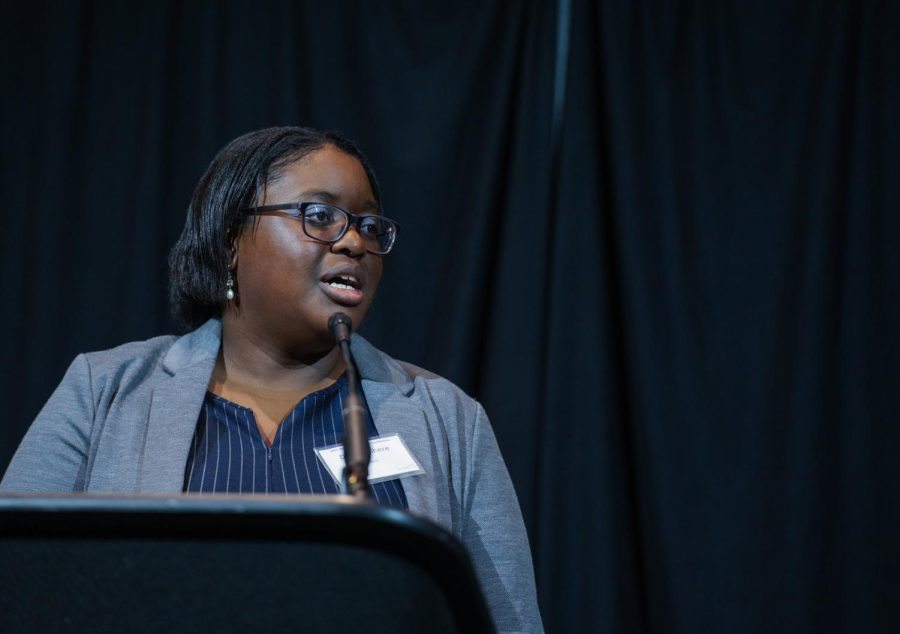Journalist Dana Amihere shared her personal and professional experiences with community college students, overcoming imposter syndrome and the unfair system surrounding unpaid internships at the keynote speech of the Journalism Association of Community Colleges’ annual Southern California conference on Oct. 15.
Amihere is the founder and executive director of AfroLA, a news website dedicated to covering communities of color in the Los Angeles area. She is also a designer, developer and data journalist. She also teaches interactive narrative journalism and data journalism at UC Berkeley, where she is still a professor.
Amihere shared her connection and personal experience with community college transfer students who had been experiencing imposter syndrome.
“They told me about how they felt looked down upon as a transfer student, that several past professors, they clearly treated them differently, going so far as to tell them that their skills are not too far because of their academic background,” Amihere said. “They felt like they didn’t fit in. And they weren’t good enough, despite the fact that they were my hardest working students.”
Despite the fact that she feels community college transfer students get treated differently at four-year universities, Amihere said it doesn’t get any better when it comes to finding internships in the journalism field. In her role with AfroLA, Amihere is a hiring manager who is tasked with reviewing applications for internships.
“Unpaid internships are a scourge that shouldn’t make sense because they shut out all my applicants who can’t afford to support themselves and don’t have family or others to financially support while they work for non-paying students from elite schools, who shall remain nameless,” Amihere said. “We’re talking about rise to the top of the pile of applicants, and are too often viewed as better qualified candidates.”
Amihere expressed in her keynote that these programs that set aside spots for applicants for particular schools and programs worry her because those positions are funded by post-graduate programs.
“What really makes me angry is that the community college students I’ve worked with as interns that I’ve mentored have been the best and brightest in the bunch. They work harder. They stay later, in pursuit of trying to prove they deserve to be there,” she said.
Amihere expressed relatability when it came to these feelings of inadequacy of being out of place because of not feeling seen. She talks about working in an industry being a black woman in a white-dominated field.
She compared herself to a dating app, having all the qualifications but the only downside was her appearance.
“Bachelor’s degree in journalism, years of experience in web development, and my resume was my profile,” she said. “But then there’s that pesky profile picture that goes with it. So this one goes one of two ways for me: swiping left and rejected based on appearances.”
People saw Amihere as a “diversifier” and a “unicorn,” in her words, making her feel that she had to prove her work was good enough.
“Mistakes will be made. But don’t let your mistakes cripple you learn from them. Pick yourself up and feel better,” she said. “We all fail. Over and over. We always will. It’s what you do with it. That counts.”
The COVID-19 pandemic ended up saving Amihere’s life, happiness and sanity. She started her journey with her new business AfroLA, a newsroom covering the lens of Los Angeles for all Angelenos through the lens of the black community.
“It’s a chance to remove barriers for community college students like you who are trying to break into journalism or continue education. I am looking at some of the best, brightest and most hardworking students that journalists I see,” said Amihere.




